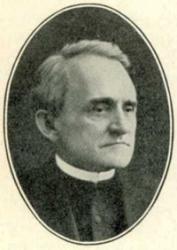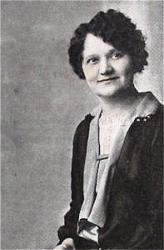1659 - 1725 Person Name: S. Franck Author of "Ach, Gott, verlaß mich nicht!" in Deutsches Liederbuch Franck, Salomo, son of Jakob Franck, financial secretary at Weimar, was born at Weimar, March 6, 1659. Little is known of his early history. He probably studied at Jena, and seems thereafter to have held some appointment at Zwickau. In 1689 he became secretary of the Schwarzburg ducal administration at Arnstadt; and in 1697 of the Saxon administration and of the consistory at Jena. He was then, in 1702, appointed secretary of the consistory, librarian, and curator of the ducal collection of coins and medals at Weimar. He died at Weimar July 11, 1725 (Koch, v. 420-426; Allgemeine Deutsche Biographie, vii. 213-214; Schauer's introduction, &c.)
He was a member of the Fruitbearing Society, and the author of a considerable number of secular poems, which are almost all "occasional" pieces and now forgotten. A diligent worker and a man of true piety, he had severe family afflictions to bear, and an undercurrent of meditation on death is present in many of his hymns. As a hymnwriter he is distinguished for ease and correctness of style; for adaptation to popular understanding and to congregational singing; for his love of adding refrains to his hymns; and for his happiness in word-painting and in setting forth contrasts.
Of his hymns (about 330 in all) which still continue in use in Germany, the most important appeared in his (1) Geistliche Poesie, Weimar, 1685, and in his (2) Geist und Weltliche Poesien, vol. i., Jena, 1711; vol. ii., Jena, 1716. A selection of 46 of his Geistliche Lieder with a biographical and critical intro¬duction by Dr. J. K. Schauer appeared at Halle, 1855. Eight of his hymns have passed into English, as follows:—
i. Hymns in English common use: -
i. Ach Gott verlass mich nicht. Supplication. A beautiful hymn of supplication for God's help founded on Ps. xxxviii. 22. It is No. 1 in the Appendix to the Anderer Theil des Naumburgischen Gesang Buchs, Naumburg, 1714, p. 106, in 5 st. of 8 1., marked "Salomon Francke" (ed. 1717, p. 487, marked "Gottgelassen Unverlassen, Salomon Francke.") The editor of this collection, J. M. Sehamelius, who was one of the best hymnologists of the time, evidently thus believed that it was by Franck, but it has not yet been found in any work published by Franck himself. Each stanza begins and ends with "Ach Gott verlass mich nicht." It is included in Schauer's introduction, and in many recent hymnals, as in the Berlin Gesang-Buch, 1829, the Württemberg Gesang-Buch, 1842, Hannover Gesang-Buch , 1883, &c. The translations in common use are:—
1. Forsake me not, my God . A full and good but rather free translation in the Family Treasury (Edinburgh: Nelson), 1859, pt. ii. p.168, and thence, in Boardman's Selection, Philadelphia, U.S., 1861, and in the Pennsylvania Lutheran Church Book, 1868.
2. 0 God, forsake me not! Thine hand, by M. W. Stryker, in his Hymns and Verses, 1883, p. 32, and repeated in his Christian Chorals, 1885.
ii. Ich weiss es wird mein Ende kommen. For the Dying. 1711, as above, p. 91, in 7 st. of 6 l., entitled "The author's daily dying thoughts” Included by Schauer, 1855, p. 79; in Burg's Gesang-Buch, Breslau, 1746, &c. The translations in common use are :—
1. I know my end must surely come. A translation of stanza i., vii., in 2 st. of 6-8's, by Miss Winkworth, in the second series of her Lyra Germanica, 1858, p. 203. Thence in the Psalms & Hymns, Bedford, 1859, and in America in the Pennsylvania Lutheran Church Book , 1868.
2. I know the doom that must befall me. This is the above translation, rewritten by Miss Winkworth to the original metre, and given in her Chorale Book for England, 1863, No. 185. To this translation of stanzas iii., iv., vi., were added, and the others altered and beginning, "I know full well death must befall me," included in the Ohio Lutheran Hymnal, 1880.
iii. So ruhest du, o meine Run. Easter Eve. 1685, as above, p. 29, in 7 st. of 4 1., entitled "On the burial of Jesus." It is a beautiful hymn on the entombment of Christ, founded on Rist's "0 Traurigkeit" (q. v.). Included in Schauer, 1855, p. 44, and in many German collections, as the Unv. L. S., 1851, No. 118.
Frequently it appears in altered forms. Thus J. A. Schlegel, 1766, p. 86, altered it to "So schlummerst du in stiller Ruh," and the Berlin Gesang-Buch, 1780, No. 102, further alters it to "Zur Grabesruh entschliefest du."
The translations in common use, all from the original, are:—
1. Thou who hast blest my soul with rest, a good translation, omitting st. ii., v., by A. T. Russell, as No. 103 in his Psalms & Hymns 1851.
2. Thou restest in the tomb beneath, a good translation, omitting stanza ii., v., as No. 83 in J. F. Thrupp's Psalms & Hymns, 1853.
3. Rest of the weary Thou! a somewhat expanded version, omitting stanza iii. by Miss Winkworth in her Lyra Germanica, 1st series, 1855, p. 85, repeated in the Pennsylvania Lutheran Church Book, 1868.
4. So rest, my Rest! a very good translation, omitting stanza iii., by R. Massie, as No. 93 in the edition, 1857, of Mercer's Chorale Psalms & Hymn Book (Ox. edition, 1864, No. 184). This has been included in Chope's Hymnal, 1862; Kennedy, 1863; the Hymnary, 1872; Thring's Collection, 1880-82, &c; and in America in the Evangelical Hymnal, N. Y., 1880, and Laudes Domini, 1884. The form in Allon's Supplemental Hymns, No. 324, is a recast partly taken from Miss Winkworth's translation of "Nun gingst auch du" (see Strauss, V. F.).
Other translations are : (1) "Now to the tomb Thyself art come," from Schlegel, by Dr. H. Mills, 1845 (1856, p. 316). (2) "So dost Thou rest," in the British Herald, Dec., 1866, p. 376, repeated as No. 421 in Reid's Praise Book, 1872. (3) "So thou art resting, O my Rest," in the British Herald, April, 1869, p. 52.
ii. Hymns not in English common use:
iv. Ach was ist dooh unsre Zeit. For the Dying. 1685, as above, p. 64, in 6 st., and Schauer, p. 31, each stanza ending "Mensch, bedenke doch, das Ende." Translated as "Oh! what is human life below," by Miss Cox in Lyra Messianica, 1864, p. 47, repeated in her Hymns from the German, 1864, p. 135, in the original metre, beginning, “What is human life below." Also translated by Miss Dunn, 1857, p. 52; and by E. Massie, 1867, p. 3.
v. Gott, du Licht, das ewig bleibet. Morning. 1716, as above, p. 160, in 5 st., entitled "Morning Devotion," and in Schauer, p. 4. Translated by H. J. Buckoll, 1842, p. 12; and by Miss Manington, 1863, p. 120.
vi. Heil'ger Tisch! Den Jesus decket. Holy Communion. 1711, as above, p. 69, in 6 st., entitled “Another Communion Meditation." In Schauer, p. 67. Translated as, "This holy feast, by Jesus spread," by Miss Cox, in Lyra Eucharistica, 1863, p. 173.
vii. Ich weiss, es kann mir nichts geschehen. God's Guidance. 1711, as above, p. 221, in 5 st. (1 l. 5, 6 of each st. being a refrain), entitled “On the words of Psalm lxxiii. 23, 24." In Schauer, p. 21. Translated by Miss Manington, 1863, p. 22.
viii. Mein Gott, wie bist du so verborgen. Providence, 1711, as above, p. 76, in 6 st. (1 l. 5, 6 of each st. being a refrain), entitled "The wonderfully blessed leadings of God. In Schauer, p. 16. Translated by Miss Manington, 1863, p. 7. [Rev. James Mearns, M.A.]
-- John Julian, Dictionary of Hymnology
Salomo Franck


 My Starred Hymns
My Starred Hymns



